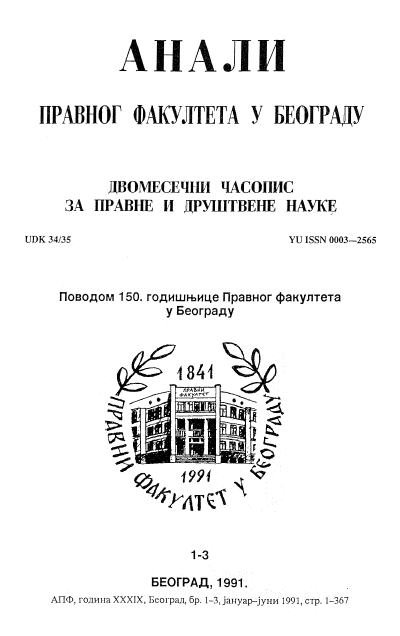НЕКИ ПРОБЛЕМИ У ВЕЗИ СА ОБ ЈЕКТИВНО - СУБЈЕКТИВНИМ СХВАТАЊЕМ КРИВИЧНОГ ДЕЛА
SOME PROBLEMS OF OBJECTIVE-SUBJECTIVE CONCEPTION OF CRIMINAL OFFENCE
Author(s): Dragoljub AtanackovićSubject(s): Criminal Law
Published by: Правни факултет Универзитета у Београду
Keywords: Criminal offence; Guilt; Perpetrator
Summary/Abstract: The objective-subjective conception of criminal offence includes the guilt of the perpetrator within the notion of criminal offence. Thus, an act is not a criminal offence if its perpetrator is not to blame. However, if the guilt is a component part of that phenomenom (criminal offence) due to which someone is accused, there follows an illogical conclusion that one is guilty because he is to bleme, namely because he has realized the elements of criminal offence, one of which is the element that he was to blame. This illogical conclusion may be eliminated after one abandons the traditional psychological conception of guilt according to which the psychological relationship of the perpetrator toward the criminal offence is at the same time the ground of reproach (guilt) and the component part of the very criminal offence. Instead, one should accept the normative conception of guilt which looks at the reproach as a kind of negative value assessment of the perpetrator, which has no relation to the psychological relationship between the perpetrator and the criminal offence. Accordingly, it is possible to conceive criminal offence in the objective - subjective sense without considering guilt as a component part of the criminal offence itself. In such a way mentioned illogical conclusion is eliminated.
Journal: Анали Правног факултета у Београду
- Issue Year: 39/1991
- Issue No: 1-3
- Page Range: 29-35
- Page Count: 7
- Language: Serbian

